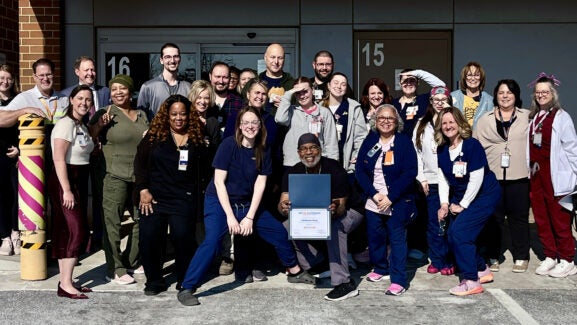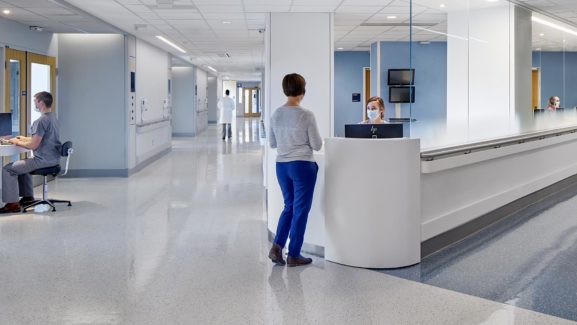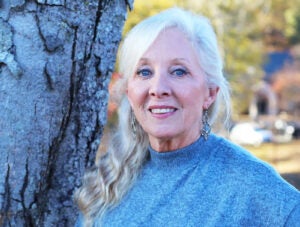
‘Giving Children a Voice and a Chance at a Better Life’
In 2024, UVA Health allocated more than $265,000 in grant funding to 42 local nonprofit organizations — 24 in the Prince William Health District; 18, in the Rappahannock-Rapidan Health District. These funds support our communities' most vulnerable populations, reflecting our commitment to diversity, equity, and inclusion, and addressing healthcare workforce development.
Now, Connect takes a closer look at how Court Appointed Special Advocates (CASA) Children’s Intervention Services (CIS) — one of the 2024 awardees in the Prince William Health District — is benefiting from the UVA Health grant it received in 2023:
Origins
CASA was started in 1977 by a judge in Seattle to get local residents more involved in helping child victims of abuse and neglect. Today, there are 955+ CASA programs nationwide — 27 of them, in Virginia. CASA CIS, a 501c(3), not-for-profit organization, was started in 1994 — and by 2018, serving Prince William, Fauquier, Rappahannock, and Warren counties as one of the largest CASA programs in the Commonwealth.
Rooted in Service
Advocating for children has been Linda Krieg’s life’s work. Her distinguished, two-decade, FBI career involved investigating violent crimes and supervising the Crimes Against Children Unit, where she collaborated closely with the National Center for Missing and Exploited Children (NCMEC). In 2010, Krieg joined NCMEC as chief operating officer, focusing on child protection and aiding law enforcement.
Stemming Secondary Trauma
In September 2022, Krieg assumed the role of executive director of CASA CIS in Manassas. A child in the court system often is absent from their own proceedings. CASA CIS is the only court advocacy program to stand up for these children. And its volunteers in Manassas, Virginia and surrounding areas are dedicated to filling the gap between the child and the court system — giving children a voice and a chance at a better life.
On average, Krieg has 90 dedicated volunteers providing services for approximately 290 children a year. With such high demand, CASA CIS normally has about 25 children on an advocate wait list — making the support and well-being of the volunteers a special point of interest.
Immediately, Krieg noticed the high attrition of volunteers and became concerned that burnout and stress of secondary trauma were the root causes. She researched ways to manage those. Krieg applied for a UVA Health grant to be used for Mental Health Awareness Training to help her team learn self-care and ultimately to reduce the drop off in volunteers and staff.
Building Relationships
Krieg broke the grant into three initiatives. She began by hiring two George Mason University researchers to develop and present a training program on “Building Relationships With Children and Teens who have Experienced Trauma.”
The lunch-and-learn, in-person session — also available online — provided practical, yet fun ways to deal with the impact of trauma and mental health disorders on the nervous system. It also offered information, demonstrations, and practice case studies. And the program explored the impact of trauma and mental health disorders on the nervous system and children’s behavior to provide volunteers with tools to help make real connections with the children.
The team was thrilled with all they learned and felt that not only did the researchers speak their language, but also really understood what they experienced as a volunteer or staff member.
Self-Care
Next, Krieg learned of a coworker who attended a Crimes Against Children conference and received a book recommendation, “Trauma Stewardship, an Everyday Guide to Caring for Self While Caring for Others.” She found the book to be a natural follow-up and launched a series of mini book chats. Each session, the team would work from two or three chapters in-person and online, which also proved to be very popular.
The last part of the UVA Health grant was used to offer chair yoga classes. Once a month, a yoga instructor hosted a session in the office and online — focusing on breathing, meditation, and self-care, bringing the team even closer together.
What’s Ahead?
Ultimately, the training was a success. Not only does Krieg still have the team that was there when she joined CASA CIS, she reduced the attrition of volunteers who were burning out at about the 36-month mark. They’re now looking at 48 months of service.
CASA CIS earned another UVA Health grant this year and is talking to the researchers about the next step in developing workshops.
Learn more about how UVA Health supports needs and fosters strategic community partnerships throughout Northern Virginia and Culpeper.
Latest News




